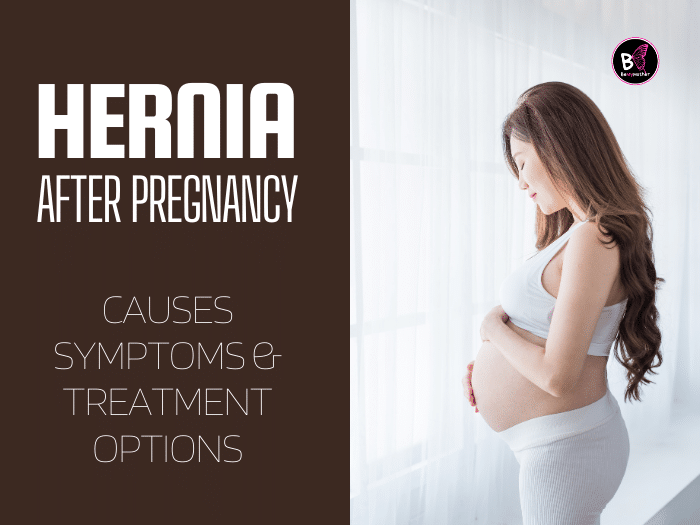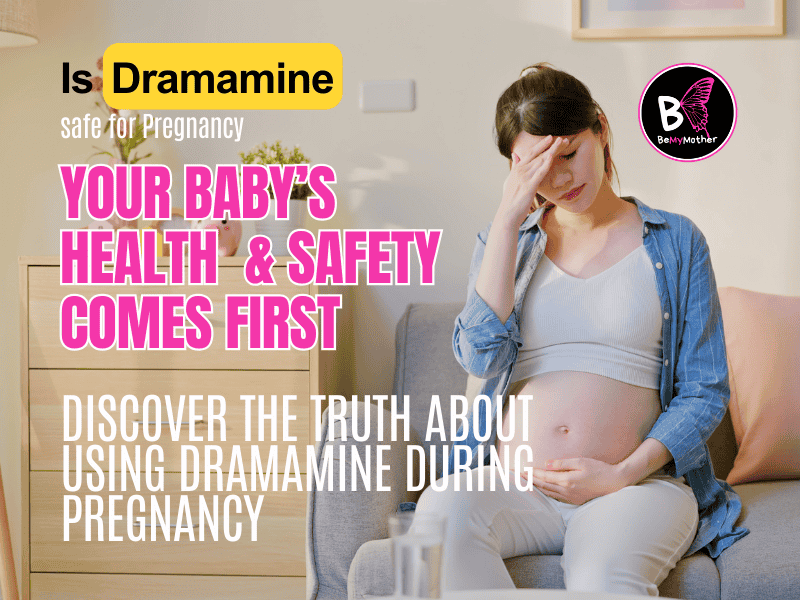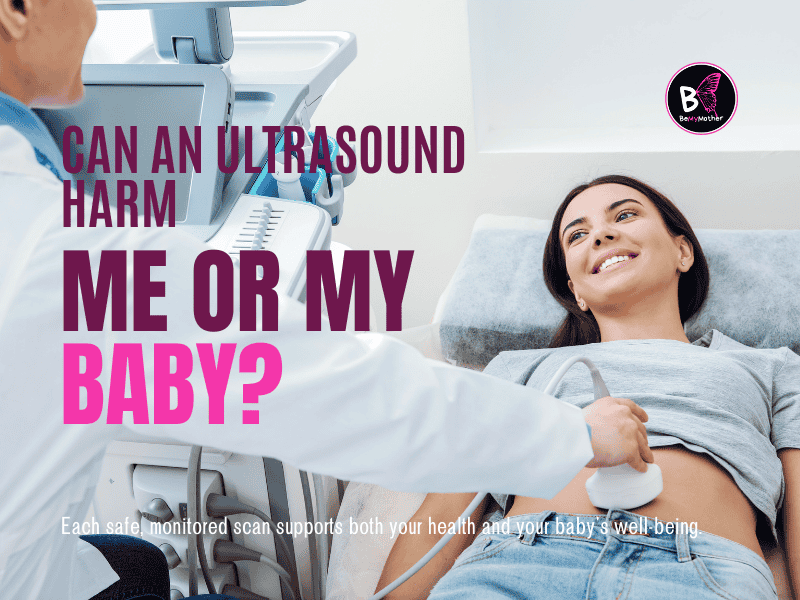Pregnancy is a transformative journey, but it can also bring unexpected challenges, including hernia after pregnancy. Many women experience umbilical, inguinal, or incisional hernias postpartum due to abdominal strain and weakened muscles. While some hernias remain mild, others require medical intervention. Understanding the symptoms, causes, and treatment options can help new mothers navigate hernia recovery safely.
This guide will explore everything you need to know about postpartum hernias, from self-diagnosis to prevention and treatment options.
1. Hernia After Pregnancy: What Every New Mom Should Know
A postpartum hernia occurs when an organ or tissue pushes through a weakened area in the abdominal muscles, often near the navel or previous C-section scars. Pregnancy increases intra-abdominal pressure, making hernias more common in new mothers.
Why Do Hernias Develop After Pregnancy?
✔ Increased abdominal pressure from carrying a baby.
✔ Weakened muscles due to hormonal changes.
✔ Strenuous labor and pushing during delivery.
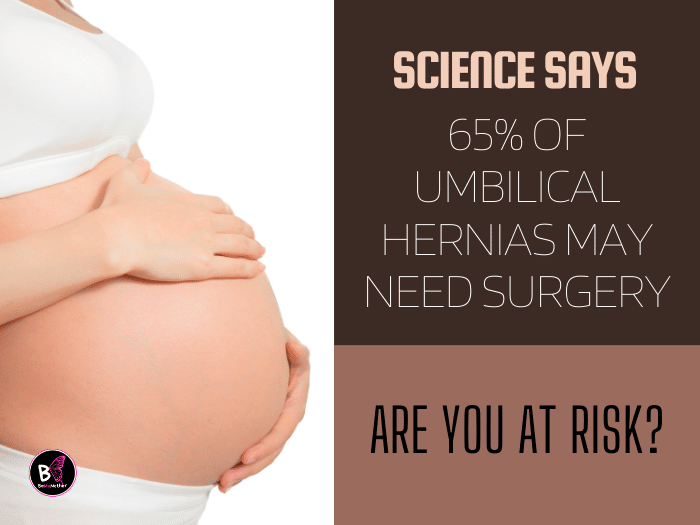
🔍 Research Insight: Postpartum umbilical hernias occur due to increased intra-abdominal pressure during pregnancy, leading to a defect in the abdominal fascia near the navel. Approximately 65% of adults with an umbilical hernia will eventually require surgical intervention.
Source: NCBI (National Center for Biotechnology Information)
2. Common Symptoms of a Hernia in Women
Women with postpartum hernias may experience:
| Symptom | Description |
| Bulge in the abdomen | A visible lump near the belly button or lower abdomen. |
| Pain and discomfort | Worsens when coughing, lifting, or straining. |
| Pressure or pulling sensation | Especially around the navel or surgical scars. |
| Severe pain & fever | Could indicate a strangulated hernia, requiring emergency care. |
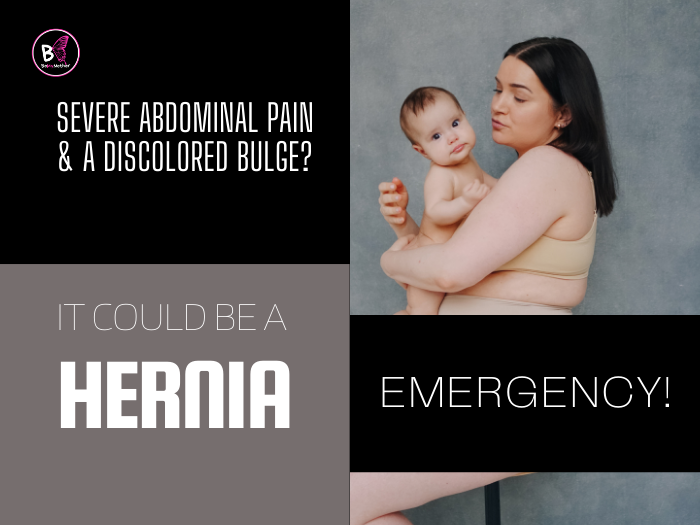
🔍 Research Insight: Symptoms of a strangulated umbilical hernia include severe pain, constipation, fever, a discolored bulge, and vomiting—all of which require immediate medical attention.
Source: Hopkins Medicine
3. How to Get Rid of an Umbilical Hernia After Pregnancy
Treatment for an umbilical hernia after pregnancy varies based on its size and severity:
✔ Mild cases – Often monitored with support garments and physical therapy, allowing the hernia to heal naturally over time.
✔ Moderate cases – May require surgical intervention if symptoms, such as pain or discomfort, persist despite conservative treatment.
✔ Severe cases – Emergency surgery may be necessary if the hernia becomes strangulated, which can cause serious complications.
It’s important to consult with a healthcare provider to determine the best treatment approach based on the severity of the hernia and individual health needs.
🔍 Research Insight: Umbilical hernia repair during pregnancy is safe and can be performed with minimal risk. Many women choose to have hernia repair during a C-section, although the recurrence rate is high.
Source: PMC (PubMed Central)
💡 Related Article: If you’re struggling with an umbilical hernia after pregnancy, comfort is key. Learn how a pregnancy belt can provide the support you need in How to Wear a Pregnancy Belt: 8 Exquisite Tips for Comfort. It’s an effective solution to help manage mild to moderate hernias while aiding recovery.
4. How to Reduce a Hernia Without Surgery
In some cases, lifestyle changes and home remedies may help manage hernia symptoms and prevent further complications:
✔ Avoid Heavy Lifting – Lifting heavy objects increases pressure on the abdominal wall, which can worsen a hernia. Instead, practice proper lifting techniques or seek assistance.
✔ Wear a Belly Band – A supportive belly band or hernia belt can provide temporary relief by gently compressing the area and reducing discomfort.
✔ Maintain a Healthy Weight – Excess weight puts additional strain on weak abdominal muscles, so adopting a balanced diet and regular exercise routine can help prevent hernia progression.
While these measures may ease symptoms, consulting a healthcare professional for proper evaluation is essential.
💡 Related Article: Considering ways to restore your core after pregnancy? Discover how a Tummy Tuck Can Help Post-Pregnancy: 9 Life-Changing Expert-Backed Insights and learn whether it’s the right choice for recovery and confidence.
5. Diagnosing a Hernia After Pregnancy: How to Check Yourself
How to Perform the Three-Finger Test for Abdominal Separation:
Checking for abdominal separation (diastasis recti) at home is simple with this test:
1️⃣ Lie on Your Back: Find a flat, comfortable surface and bend your knees while keeping your feet flat on the ground.
2️⃣ Place Three Fingers Above Your Belly Button: Gently press your fingers into the midline of your abdomen.
3️⃣ Lift Your Head Slightly: Engage your core by raising your head and shoulders. If you feel a gap or bulge between the muscles, it may indicate diastasis recti or a possible hernia.
If you notice a significant separation, consult a doctor for a professional assessment, including an ultrasound or physical exam.
6. What Causes a Hernia After Pregnancy?
Several factors increase the risk of postpartum hernias:
| Cause | How It Affects the Body |
| Weakened abdominal muscles | Stretching of connective tissue during pregnancy. |
| Excessive weight gain | Puts extra pressure on the abdominal wall. |
| C-section scars | Can create weak points where a hernia may develop. |
A combination of these factors can increase postpartum hernia risks.
7. Can a Hernia Heal Itself? Understanding the Watch-and-Wait Approach
When to Wait vs. When to Seek Treatment
✔ Small, painless hernias – May not require surgery but should be monitored.
✔ Painful or growing hernias – Medical evaluation is necessary.
✔ Strangulated hernias – Urgent surgery required.
In some cases, a hernia will not heal on its own and will require surgical correction.
8. Is There a Risk of Hernia in Subsequent Pregnancies?
Can you get pregnant after Hernia? Hernia During Pregnancy | Dr ParthaSarathy
Understanding the risks of hernia during future pregnancies is essential for making informed decisions:
- If repaired before pregnancy – While hernia repair strengthens the abdominal wall, there is still a risk of recurrence due to the added pressure and stretching during pregnancy. Monitoring by a healthcare provider is crucial.
- If untreated – An existing hernia can worsen with additional pregnancies as increased abdominal pressure may cause it to expand, leading to discomfort or complications. Seeking medical advice is recommended.
Proper prenatal care and strengthening core muscles before conception can help manage hernia risks in subsequent pregnancies.
🔍 Research Insight: Hernia repair during pregnancy is possible with minimal risk to the mother and baby, but recurrence rates remain high.
Source: PMC (PubMed Central)
💡 Related Article: Thinking about getting your body ready for another pregnancy? Explore the benefits of Vitanica Pregnancy Prep: 9 Shocking Things You Need to Know Before Trying to Conceive and make informed choices for a healthy start.
9. How to Manage and Prevent a Hernia After Pregnancy
Preventing and managing a hernia after pregnancy requires mindful care and gradual strengthening of the core:
✔ Strengthen Core Muscles – Engage in gentle postpartum exercises like pelvic tilts or deep belly breathing to rebuild abdominal strength safely.
✔ Avoid Heavy Lifting – Lifting heavy objects can strain weakened muscles, increasing the risk of hernias. Always lift with proper technique or seek assistance when needed.
✔ Use Proper Posture – Maintaining good posture while sitting, standing, and lifting helps support the abdominal wall and prevents unnecessary strain.
Prioritizing core recovery and avoiding excess pressure on the abdomen significantly reduces the chances of developing a postpartum hernia.
10. Can You Carry a Pregnancy with a Hernia? Risks and Considerations
Women with small hernias may carry a pregnancy without issues, but larger hernias can cause:
✔ Increased pain and discomfort.
✔ Potential complications requiring surgical repair.
✔ A higher chance of C-section delivery.
If planning another pregnancy, consult a doctor about hernia risks.
💡 Related Article: Struggling with postpartum back pain? Learn how to manage discomfort and improve recovery with Tailbone Hurting During Pregnancy? 9 Must-Know Facts and Expert Tips for better mobility and relief.
11. When Does a Hernia Require Surgery?
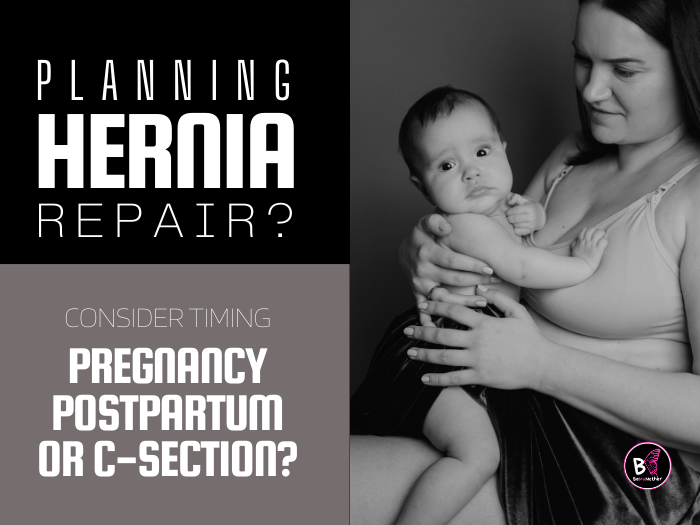
✔ Small, painless hernias – These may not require immediate surgery. Regular monitoring is sufficient unless symptoms worsen.
✔ Larger hernias—A hernia that grows in size or becomes more painful might need surgical intervention. Depending on the hernia’s complexity, options include laparoscopic or open surgery.
✔ Strangulated hernias – These are considered emergencies and require prompt surgery to avoid complications, such as tissue death.
Surgical options typically include mesh repair to strengthen the area and laparoscopic procedures offering smaller incisions and faster recovery times than traditional surgery. Early diagnosis and intervention are crucial to managing hernias effectively.
12. Natural Remedies and Lifestyle Changes for Hernia Relief
While natural remedies won’t cure a hernia, they can help manage symptoms:
✔ Eat fiber-rich foods – Prevents constipation, reducing pressure.
✔ Use gentle massage techniques – Supports circulation in the abdominal area.
✔ Wear supportive garments – Reduces strain on weakened muscles.
However, always consult a doctor before relying on home remedies.
💡 Related Article: Juggling postpartum recovery and caring for a teething baby? Discover if Celery is Good for Teething Babies: 7 Surprising Facts Parents Should Know and how natural remedies like this can help soothe your baby while you manage hernia symptoms.
FAQ Section: Addressing Common Myths and Concerns
- Is it normal to get a hernia after pregnancy?
Yes, many women experience postpartum hernias due to weakened abdominal muscles. - Can you push an umbilical hernia back in?
Small hernias can sometimes be pushed back, but only under medical supervision. - Can a hernia go away on its own?
Small hernias may not require surgery, but they do not fully heal without medical intervention. - What foods help shrink a hernia naturally?
Anti-inflammatory foods like ginger, turmeric, and leafy greens can help reduce symptoms. - Can a postpartum hernia cause complications if left untreated?
Yes, in severe cases, an untreated hernia can become strangulated, requiring emergency surgery.
Conclusion
Hernia after pregnancy is a common condition that affects many new mothers due to weakened abdominal muscles and increased intra-abdominal pressure. While some hernias are mild, others require surgical intervention. Early diagnosis, core strengthening, and lifestyle changes can help prevent complications. If you suspect a hernia, consult a healthcare provider for proper evaluation and treatment options.

